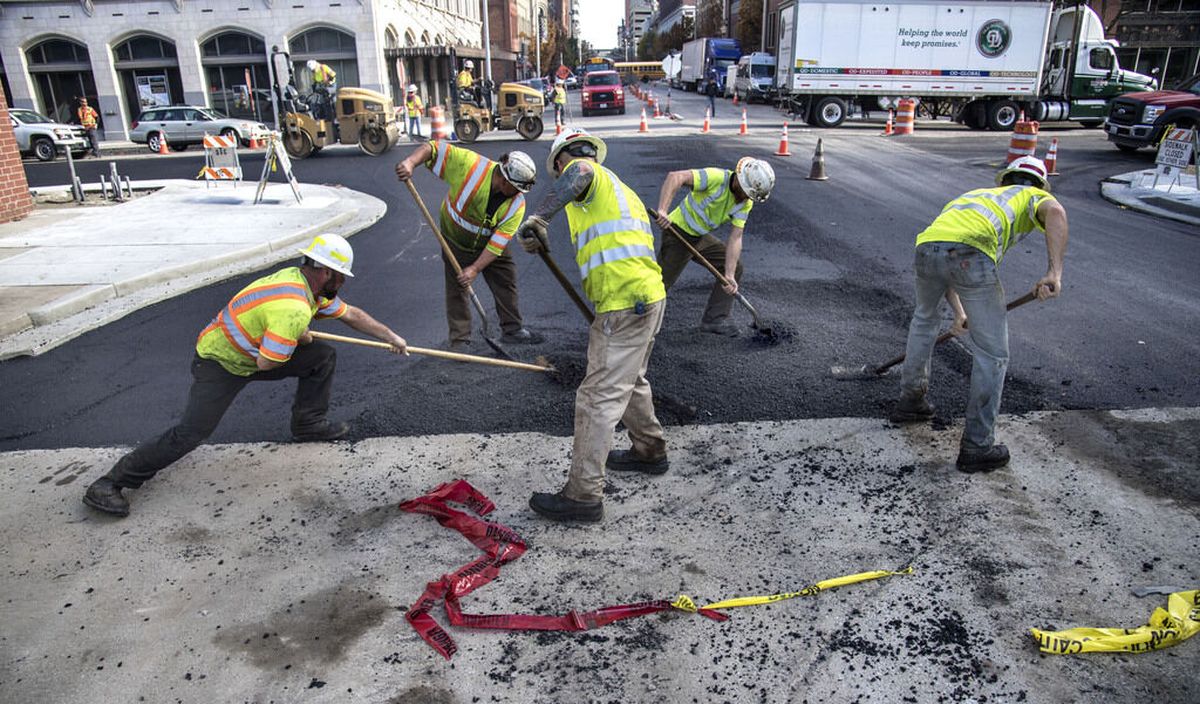This column reflects the opinion of the writer. Learn about the differences between a news story and an opinion column.
Getting There: Funding remains murky for transit agencies after court shoots down I-976

Initiative 976 would have pulled the rug out from under transportation budgets around the state, dropping the cost of the car tab fees that help fuel transit agencies.
So when the Washington Supreme Court issued a ruling Thursday that deemed the initiative unconstitutional, the expected reaction may have been rejoicing from the agency that would have borne the brunt of those cuts, the Washington State Department of Transportation.
Instead, the department issued a tersely worded statement: “Today, the Washington State Supreme Court ruled Initiative 976 unconstitutional. The Washington State Department of Transportation is working closely with the Attorney General’s Office to review the court’s decision and understand next steps to comply with the ruling.”
The Spokane Transit Authority was more effusive in its response, welcoming a decision that the agency said in a statement “preserves critical transportation funding that results in wide-ranging public benefits. Particular to transit in the Spokane region, funding is preserved for lifeline ADA Paratransit service for those whose disabilities prevent them from using regular bus service. It also stretches local dollars by leveraging competitive state grants that help build important projects like the City Line, the West Plains Transit Center and others that make transit easier and convenient to use.”
Sabrina Minshall, executive director of the Spokane Regional Transportation Council, split the difference, calling the decision “small good news.”
Minshall, whose group coordinates regional transit planning, said funds raised from car tabs are “one tool” for funding transit projects – and she was pleased to see it preserved. That’s the “good news.”
The qualifier “small” is important, she said, because the court’s decision only maintains one source of funding for a system that she describes as “woefully underfunded.”
So while it’s nice that the car tab funds won’t be immediately removed from the equation, Minshall said it’s still hard to make the math work for those trying to keep streets, bridges, trails and other transit infrastructure in tact.
WSDOT has been ringing the alarm bells about its ability to preserve and maintain its system due to I-976 and a sharp drop in gas tax revenue that began when the pandemic prioritized people staying put.
Minshall says it’s not just fewer driving and gassing up that’s draining the coffers for maintenance and improvement of the transit network.
“Any revenues you can think of for most jurisdictions are down,” she said, before rattling off a long list of taxes that the pandemic has cut into. And while revenue is decreasing, she said, “our needs have been increasing.”
Those needs include what she called a “really big backlog” of preservation work, as well as the demands for expanded transit infrastructure that accompany population growth.
And while the Supreme Court’s decision does end almost a year of uncertainty about the effect of I-976, it doesn’t end uncertainty about the future of car tab fees and transportation funding.
After the court decision came down, two Democratic Spokane lawmakers, Rep. Marcus Riccelli and Senate Majority Leader Andy Billig, told The Spokesman-Review they will work with their colleagues in Olympia to determine what steps will come next to both honor the will of the voters who approved the initiative and keep transportation projects funded.
“People think that car tabs aren’t the right place to pay for transportation,” Riccelli said. “We are going to look at these fees.”
The potential for legislative action could explain WSDOT’s sedate response: Mike Gribner, administrator of WSDOT’s Eastern Region, said this summer that the agency won’t spend money collected from car tabs until it’s clear neither the courts nor the Legislature intends to follow through with the initiative’s promise to reduce car tabs.
Watch out for windmills!
The Idaho Transportation Department says 300 oversized loads carrying blades and tower sections for 43 windmills will travel from the Port of Lewiston to Alberta, Canada, over the next two months. The largest loads will be 270 feet long and weigh 240,000 pounds.
The first load left Lewiston last week, and more will be coming every night, except Friday and Saturday, until mid-December, unless weather changes the schedule.
Pilot cars will escort the loads on the two-day journey travel north on U.S. Highway 95 to Coeur d’Alene before heading east on Interstate 90 into Montana, with flaggers in place to close the following intersections: Idaho Highway 128 and Highway 12/95 in Lewiston; Highway 95 and Lincoln Avenue/ Walnut Way in Coeur d’Alene; and the I-90 and Highway 95 interchange in Coeur d’Alene.
Work to watch for
Crews are working on a paving project on Regal Street between 46th and 55th Avenue. One lane of traffic will be open in each direction through Monday.
Crews will pave the northbound lanes of Nevada Street between Francis and Sharpsburg Avenue on Wednesday.
A grind-and-overlay project on Bernard Street between High Drive and 29th Avenue is underway, with crews expected to pave the arterial from Wednesday through Friday.
Crews will be working on a grind-and-overlay project on Eagle Ridge Boulevard between Shelby Street and Meadow Lane from Saturday through Monday, Oct. 26. The street will remain open, with flaggers directing traffic.
